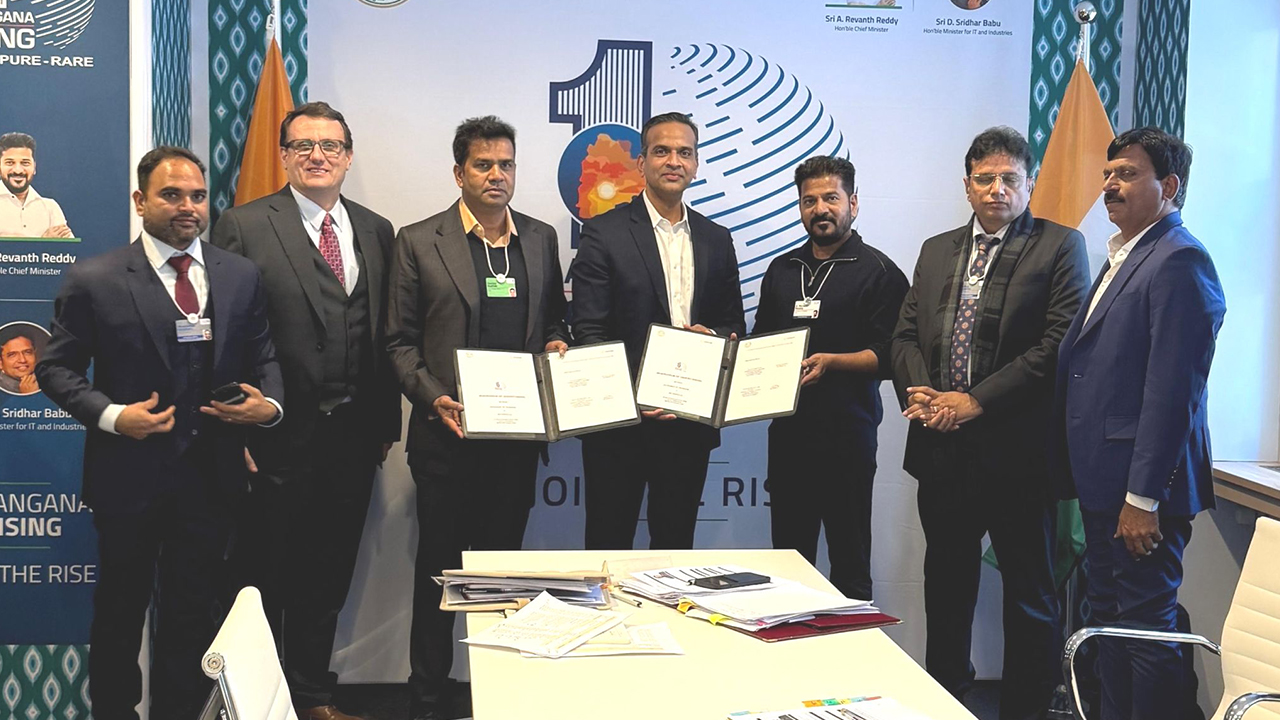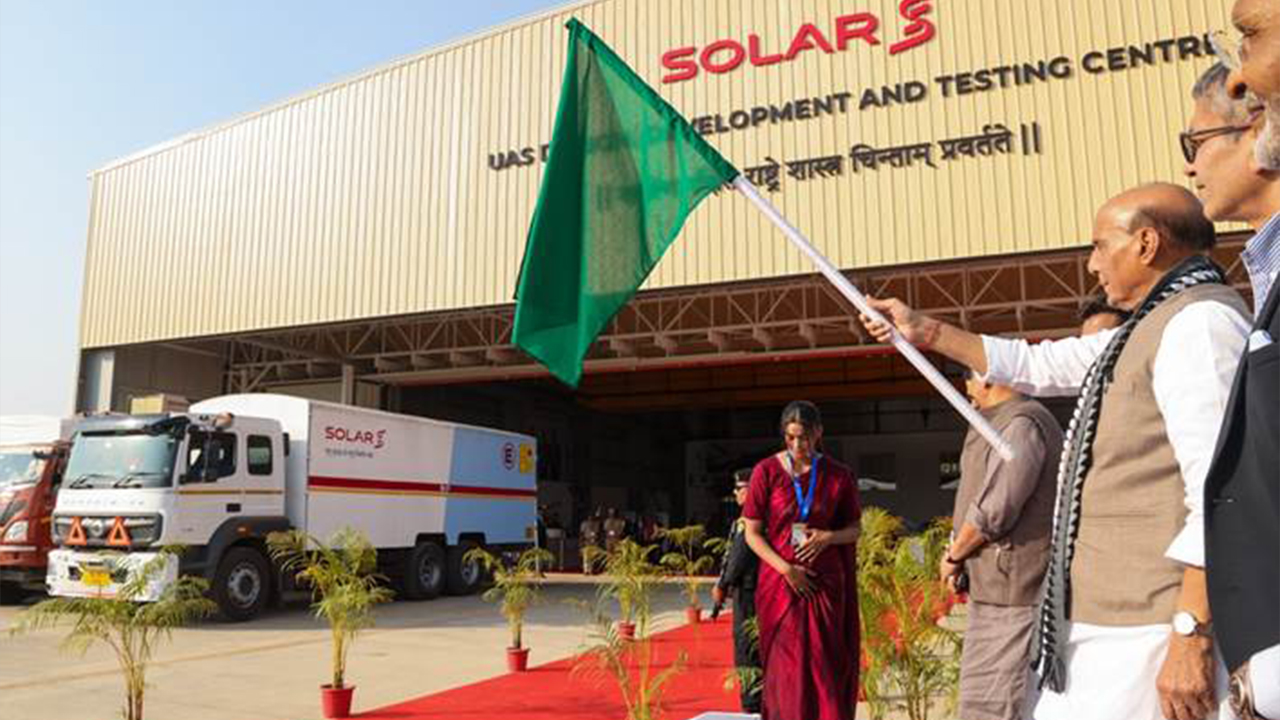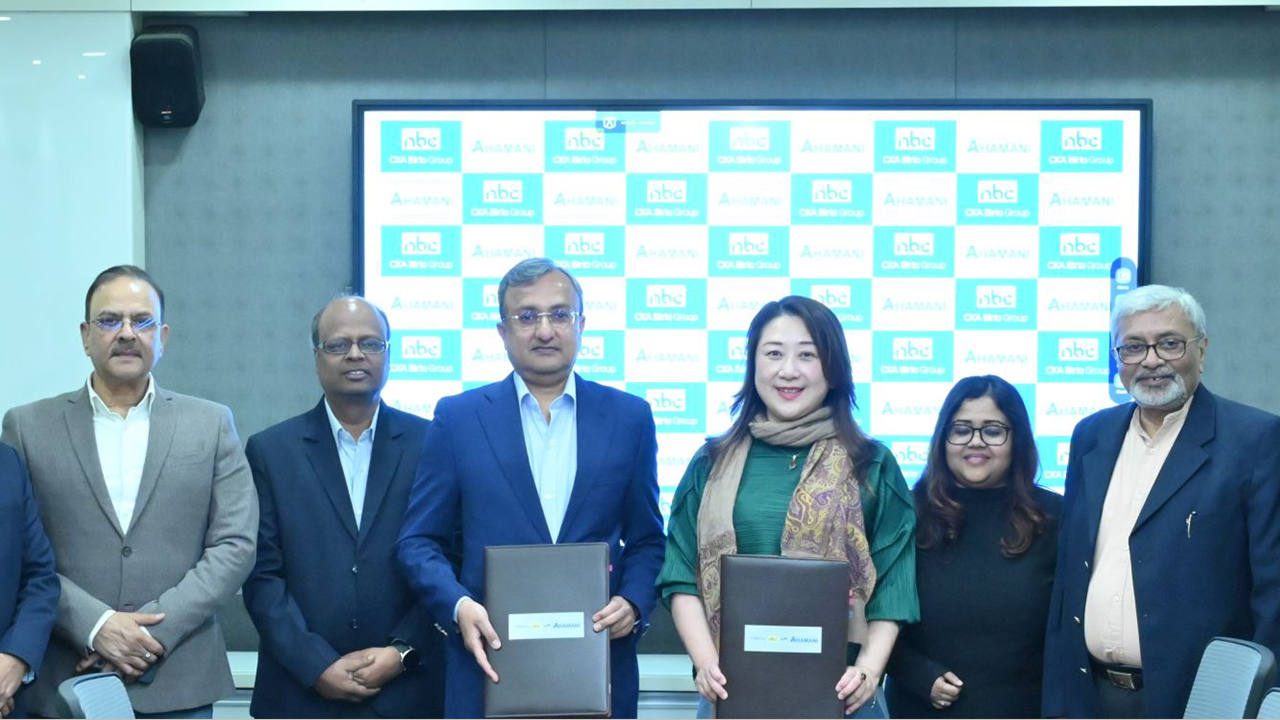Dhruva Space Collaborates with Manastu Space for LEAP-3 Mission
#DhrvaManastuCollaboration #PropulsionSystem #ManastuSpace #LEAPMission #DhruvaSpace“We are excited that this synergy represents a fusion of cutting-edge, homegrown technologies from two Indian Space startups, aligning with the global shift towards leveraging hosted payload missions. Our LEAP series offers a full-stack and cost-effective solution with enhanced flexibility and rapid deployment, positioning Dhruva Space to reap the benefits of emerging market opportunities and advanced technology integration.” - Krishna Teja Penamakuru, Chief Operations Officer & Co-founder, Dhruva Space.

September 2024 : Dhruva Space has recently announced a collaboration with Manastu Space, a Mumbai-based pioneering startup in green propulsion systems. Manastu Space’s propulsion tech shall be qualified on Dhruva Space’s LEAP-3 hosted payload mission in late-2025. This marks a significant step toward integrating Made-in-India propulsion systems into Dhruva Space’s satellite platforms and Space missions.
LEAP-3 will be the third in Dhruva Space's renowned Launching Expeditions for Aspiring Payloads (LEAP) series, aimed at both global and Indian markets.
Dhruva Space’s P-30 satellite platform is a Low Earth Orbit-optimised satellite platform, scalable for a gamut of Space missions. Dhruva Space's P-30 satellite bus is highly modular and payload-agnostic, weighing up to 50 kilograms. In January 2024, Dhruva Space’s P-30 satellite bus achieved a major milestone by being successfully Space-qualified during the company’s LEAP-TD mission aboard ISRO’s PSLV-C58.
The first three missions of the LEAP series have already gained significant customer traction, highlighting the growing demand for faster, reliable and cost-effective In-Orbit Validation (IOV) or In-Orbit Demonstration (IOD) solutions. Dhruva Space’s upcoming LEAP-3 mission not only underscores the growing interest in hosted payload missions but also reflects the increasing collaboration within the Indian market.
Manastu Space is developing an advanced green propulsion system that leverages a hydrogen peroxide-based fuel with proprietary additives, combined with an ultra-high-temperature catalyst and a novel combustion chamber. This innovative solution is 20 times more agile, 60 percent less toxic and 50 percent more efficient making it 60 percent more affordable. With the growing demand for sustainable and agile space operations, Manastu’s propulsion system is poised to gain significant traction in the global satellite market, addressing both commercial and Defense needs.
Manastu Space and Dhruva Space will also anticipate utilizing Manastu Space’s propulsion systems across the full range of Dhruva Space’s small satellite platforms for hosted payload missions as well as dedicated missions for customers.
Krishna Teja Penamakuru, Chief Operations Officer & Co-founder, Dhruva Space, says, “We are excited that this synergy represents a fusion of cutting-edge, homegrown technologies from two Indian Space startups, aligning with the global shift towards leveraging hosted payload missions. Our LEAP series offers a full-stack and cost-effective solution with enhanced flexibility and rapid deployment, positioning Dhruva Space to reap the benefits of emerging market opportunities and advanced technology integration.”
“By incorporating green propulsion systems into satellite platforms, Manastu Space can significantly enhance their agility and expand their potential applications. This technology enables more precise orbital adjustments and maneuverability, opening doors to new mission possibilities that were previously constrained by limitations in propulsion capabilities. Moreover, in compliance with international regulations, we can safely deorbit the satellite at the end of its mission, minimising Space debris and promoting sustainable Space exploration,” says Tushar Jadhav, Chief Executive Officer & Co-founder, Manastu Space.
The 2025 hosted payload mission will feature Manastu Space's state-of-the-art propulsion technology, designed to enhance satellite maneuverability and efficiency. This collaboration is expected to pave the way for future innovations and provide valuable insights into advanced propulsion systems.
NEWSLETTER
TRENDING ON PRO MFG
MORE FROM THE SECTION









